Monthly Journal
March 2023
International Press Review
The most relevant events of the area through international sources
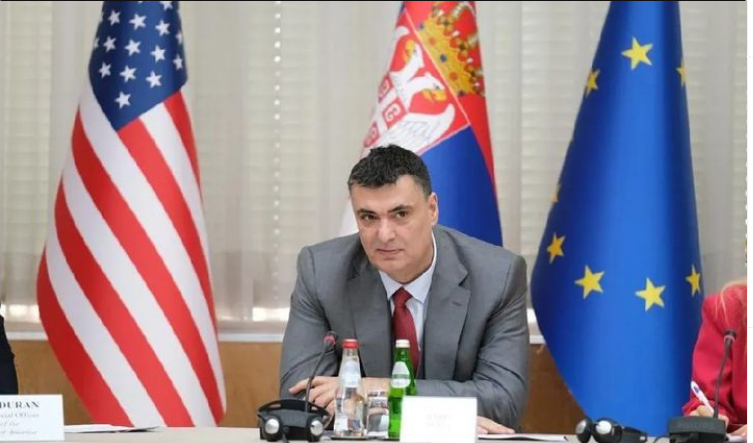
Serbian minister asks to introduce sanctions against Russia
The Kyiv Independent
Serbia’s Economy Minister Rade Basta called on his government to finally impose sanctions against Russia, warning that the country is already paying a too “high price” in economic terms for failing to do so. Basta went on to say that the Serbian government’s silence on the sanctions’ topic was becoming “more and more unbearable.” His remarks follow Serbian President Aleksandar Vucic’s statement that he could not “swear” that Serbia would never impose sanctions on Russia. Several other members of the Serbian government harshly criticized Basta’s statements.
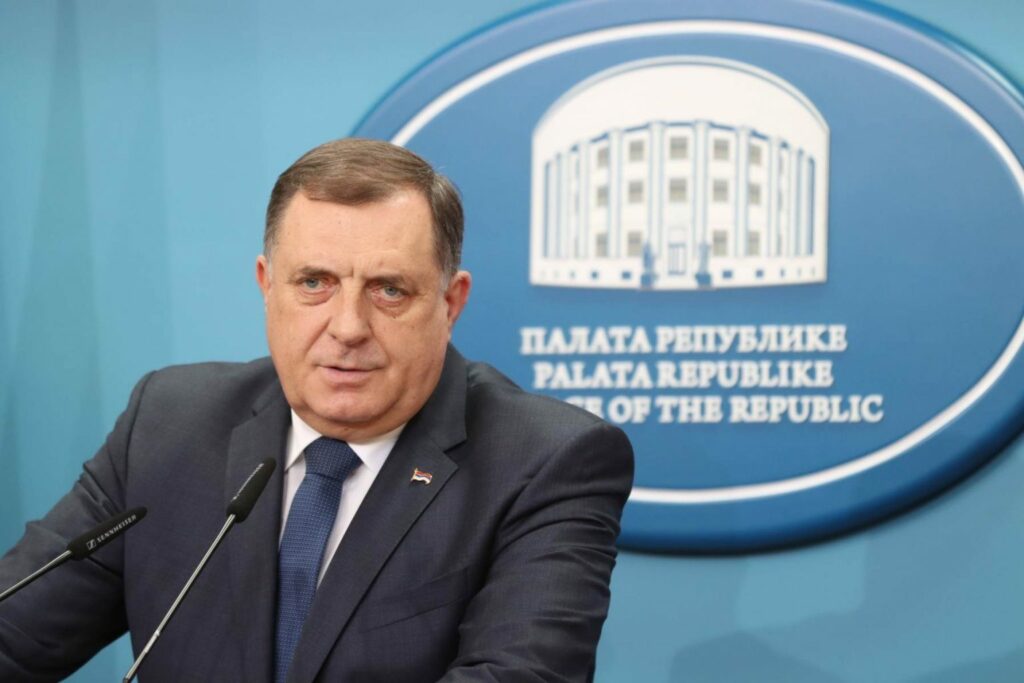
US and EU condemn plans in Bosnia for a ‘foreign agent’ law
Balkan Insight
The EU and the United States strongly condemned the announcement of the introduction of a ‘foreign agent’ law to regulate the activities of NGOs in the Bosnian Serb entity Republika Srpska (RS) and dismissed statements by RS President Milorad Dodik, who is pushing for the introduction of the legislation, that a similar law is in place in the US. According to the US, here the case is about “repressive, anti-democratic legislation that, if implemented, would drastically impinge on the rights and freedoms of the people living in the Republika Srpska” and benefit “only the ruling coalition in its effort to consolidate power”.
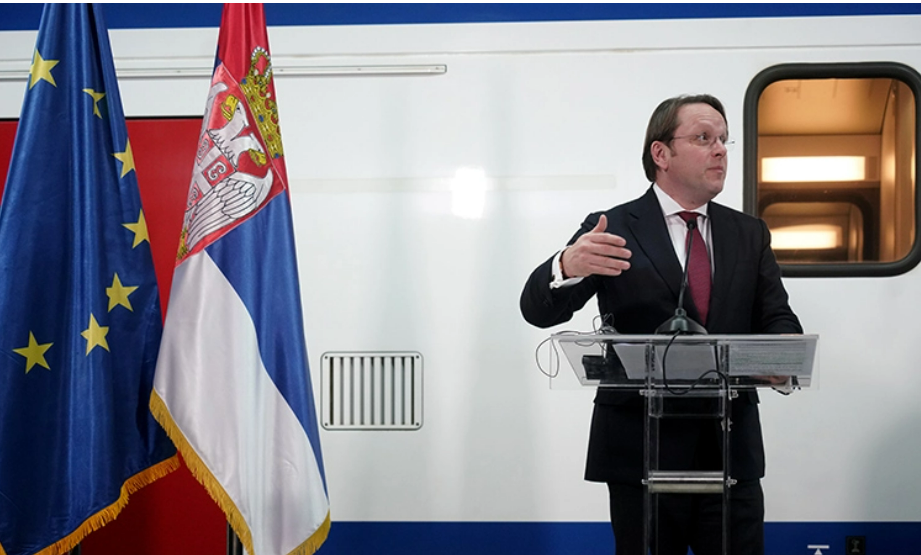
EU to finance with largest-ever grant the modernization of Serbian railway
Global Railway Review
Shortly after having agreed on the EU plan on the normalization of the relations between Serbia and Kosovo, the EU has announced a 600 million euro grant to modernize Serbian railways and improve connectivity with other European rail networks. The funds will help the modernization of the Corridor X railway, which aims to connect Serbia with the EU via Croatia, and on to Greece via North Macedonia. The grant is the largest Serbia ever received from Brussels.
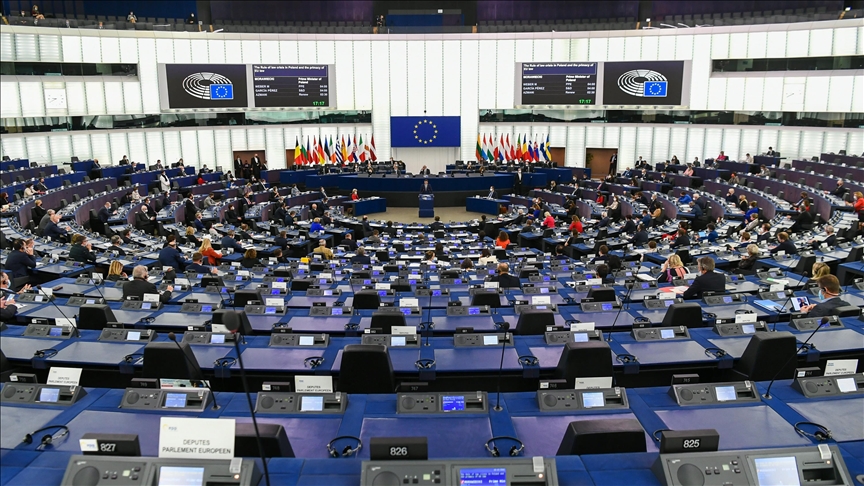
Kosovo’s citizens to travel freely to EU starting in 2024
Anadolu Agency
The European Parliament’s Committee on Civil Liberties, Justice, and Home Affairs has approved granting to Kosovo citizens visa-free travel for short stays in the EU lasting 90 days in any 180-day period. The new rules are expected to enter into force only in 2024. Earlier this month, EU ministers in charge of internal affairs gave the go-ahead for visa liberalization. The European Parliament’s plenary session has yet to officially adopt the visa waiver, but this will only be a formality given the Committee’s endorsement and the agreement of EU institutions reached already in December.
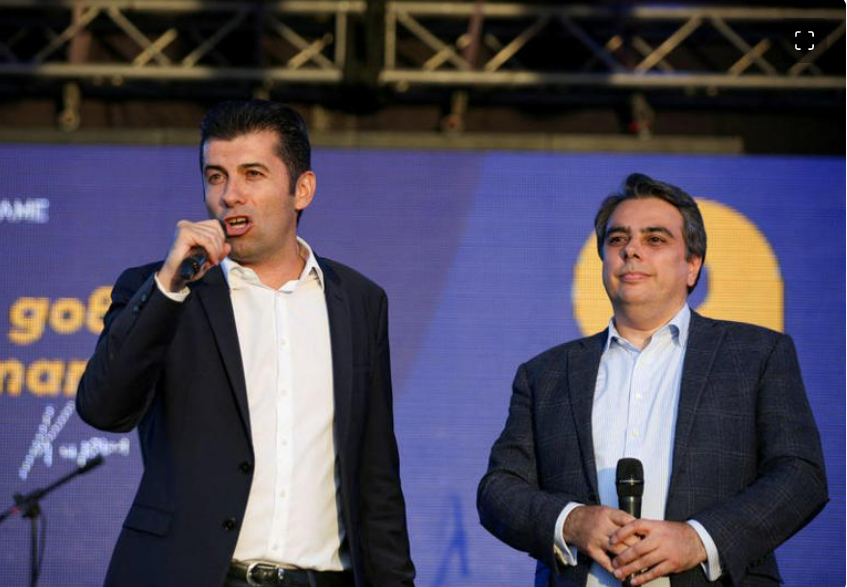
Bulgaria to held new parliamentary elections in April
EU Observer
In early April, Bulgaria will hold its fifth parliamentary elections in the last two years. The centre-right GERB-SDS electoral coalition won the most recent elections in October, but none of the political parties received enough seats to form a parliamentary majority. Meanwhile, citizens’ distrust of political parties has risen above 80%. The disaffection of citizens towards parties was confirmed by the turnout, with only 39% of voters who went to the polls in October 2022, the lowest since 1990. According to the latest surveys, projected turnout at the April’s elections is around 40%.
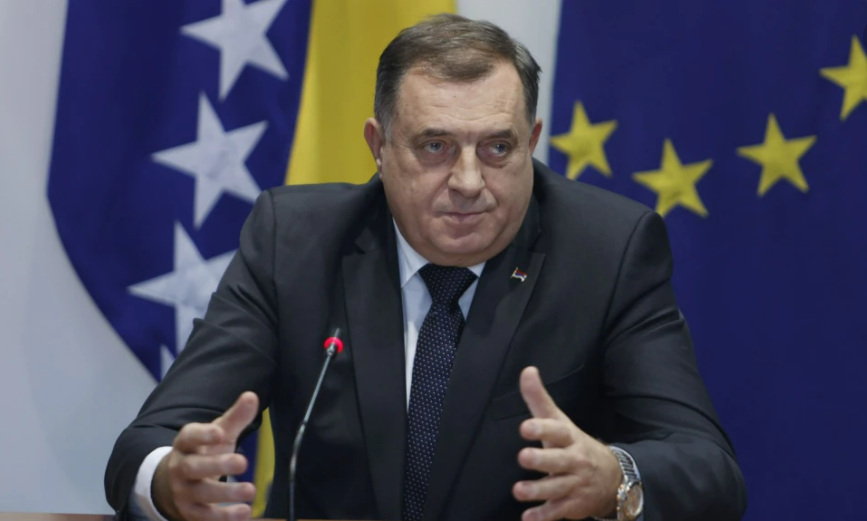
Prosecutor to open case for genocide denial against Bosnian Serb leader Dodik
Radio Free Europe
The Prosecutor’s Office of Bosnia and Herzegovina has filed a case against Bosnian Serb leader Milorad Dodik for denying that a genocide happened in Srebrenica in 1995. According to Bosnian law, the office will conduct an investigation before deciding whether to file an indictment. Dodik has denied genocide on multiple occasions, the most recent in February. Genocide denial is a crime in Bosnia since the then-international high representative for Bosnia and Herzegovina, Valentin Inzko, imposed the Law on the Prohibition of Genocide Denial in July 2021.
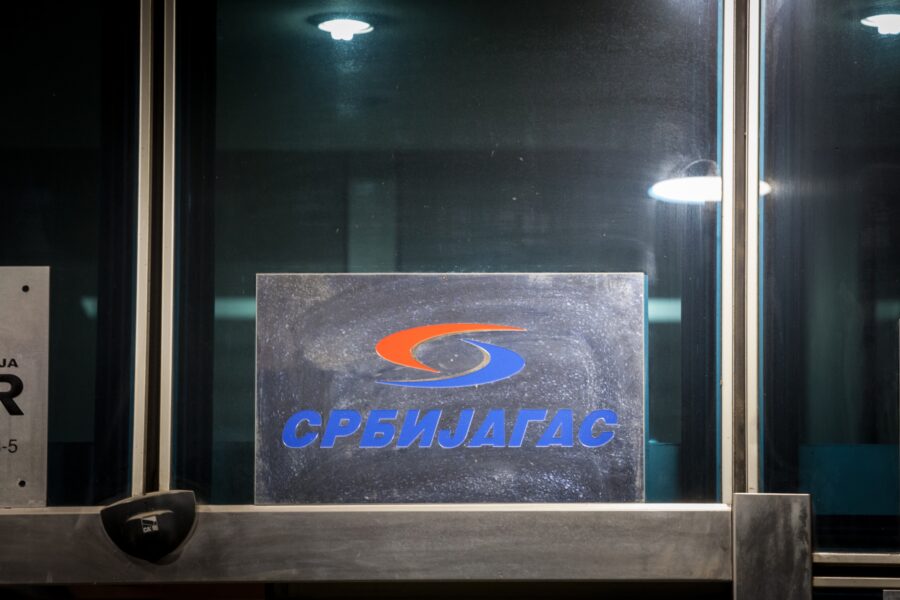
Serbian manager claims attempt to blow up pipeline was averted by Belgrade
N1 Television
Dusan Bajatovic, the CEO of the Serbian energy giant Srbijagas, an influential manager considered very close to Moscow, claimed that Serbian security forces foiled two attempts to blow up a part of the Turkish Stream gas pipeline that runs through Serbia. “There were two attempts to destroy the Turkish Stream gas pipeline, but the police, Security Information Agency and Military Intelligence Agency were on it, and satellites were used” to avert the attacks. Bajatovic did not provide any further details about the two sabotage attempts.

EU to finance air defence in Moldova
Radio Moldova
Following revelations about Russia’s attempts to overthrow the pro-Western government in Moldova, the EU will give Chisinau’s army 40 million euros. According to an internal EU memorandum dated March 13, quoted by international media such as the EU Observer, much of the money will be spent on a “long-range mobile ground surveillance radar” to help Moldova monitor its airspace. The radar falls in the purview of the Air Force Command. Major European producers are: Hensoldt, Leonardo and Thales.
The Insight Angle

Gezim Visoka
Associate Professor of Peace and Conflict Studies at the School of Law and Government at the Dublin City University (DCU) in Ireland. He is an expert on post-conflict peacebuilding and state building, diplomacy and state recognition, and critical international theory. Some of his publications are "Peace in Digital International Relations" (co-authored with Oliver P. Richmond and Ioannis Tellidis, Cambridge University Press, 2023) and "The Oxford Handbook of Peacebuilding Statebuilding and Peace Formation" (co-edited with Oliver P. Richmond, Oxford University Press, 2022).
The so-called French-German plan for Kosovo, endorsed by all EU countries, has been made finally public. Do you believe the plan will result in a significant ‘normalization’ of the Kosovo-Serbia relationship?
It is unlikely that the EU proposal will result in a significant normalisation of relations between Kosovo and Serbia because it lacks the much needed political, legal, and operational clarity for transforming the current relationship. In essence the EU proposal is a significant downgrade from the premises upon which the current Government of Kosovo at least has agreed to negotiate for. Given the fact that the predominant focus of US and EU has been on the establishment of the Association of Serb-majority Municipalities of Kosovo, it appears that the EU proposal is not centred on meeting Kosovo’s democratic will, but on appeasing Serbia and buying some sort of peace for the local Serb community in Kosovo. The EU proposal ambiguously endorsed by Kosovo and Serbia leaves room for interpretation as a legally binding agreement and a de-facto recognition of Kosovo’s independence, but that depends on the good faith of parties for its effective implementation. In contrast to the main body of the EU’s 11-point proposal, the Implementation Annex, which was intended to serve as a clear implementation guideline, has ended up being more ambiguous. As a result, there are many potential points of contention regarding the timing, order, and content of each point of the EU proposal as we are probably entering a new mode of status quo. One gets the impression that the US and EU determination to reach a flawed agreement reflects their desire to appear as credible peacemakers more than to create a deal that would bring about lasting peace and settle the many unresolved differences between the two states.
The plan evokes some advantages Serbia and Kosovo could have if they accept the plan. However, neither Belgrade nor Pristina will, for instance, be given a firm date for joining the EU. And Kosovars are still unable to freely travel to the EU, among other things. Why should both countries agree to such a plan without concrete benefits?
The long-term advantages for both parties have only been generally and hazily raised by the EU and US mediators. They primarily involve continued financial incentives and support for both countries’ European integration processes. Despite this, maintaining the current level of stability and preventing further tensions appear to be the core value of this agreement and the entire process of normalizing relations. There is little reason to think that the EU proposal will result in a path to peace that is emancipatory, just and progressive. In that sense, the deal is less about establishing a new relationship between Kosovo and Serbia that is based on mutual recognition, equality and reciprocity. Instead, it is an agreement to ensure a more stable stalemate. We are still a long way from achieving the desired level of normalcy in bilateral relations between two states, as is the case with the other Western Balkan countries. Moreover, the EU and US are largely responsible for delivering the concrete benefits, even though they also depend on the parties’ actions. For example, the EU and NATO member states’ willingness to advance Kosovo’s integration path and their support for membership in the Council of Europe and other international organizations are both necessary for the agreement to have tangible benefits for Kosovo. The same holds true for assisting Kosovo’s efforts to gain new diplomatic recognitions, including the strategically significant recognition by the five remaining EU member states.
Most important, it seem that the EU is pushing for a de facto, not a full recognition. Do you think this is enough?
Although the agreed-upon EU proposal resembles in many aspects a proposal for de facto recognition and may be seen as an improvement from the 2013 agreement, I believe it falls short of doing so. The implementation of each provision of the agreement, including those listed in the annex, will necessitate additional negotiations and concessions, which are likely to be blocked by parties and subsequently undermine their willingness to implement other aspects, barring explicit and mutual recognition. Without explicit clarity on the question of mutual recognition there won’t be a full and comprehensive normalization of relations between Kosovo and Serbia because recognition is the essential component that determines the quality of relationship, trust and willingness to make concessions.
The EU integration process is largely stalled. How dangerous is it given the geopolitical situation and Russia’s (but also China’s) interests in the region?
The EU integration process in the Western Balkans has been partially stalled due to the unsatisfactory fulfilment of EU accession criteria by the candidate and potential candidate countries, but it is also partially stalled due to EU’s internal divisions on the enlargement process. Both sides share the blame and responsibility for failing to uphold the legally-binding commitments, which has set the entire process into a spiral of mutual distrust and lack of credibility. The EU’s failure to offer a credible enlargement plan and constant change of priorities has opened up opportunities for national populist parties and non-Western forces to hijack political agenda in the region and undermine peace, democracy, and economy. But knowing that the EU-is an organization driven by reaction to crises and not reason, the dynamics of the stalled EU integration process in the Western Balkans are unlikely to change if there is no major crisis or external threat. Although the war in Ukraine has unified the EU in many aspects, it is yet to translate into a unified stance on the enlargement process in the Western Balkans.
One final question: do you believe the region is finally at peace, more than 30 years after the collapse of former Yugoslavia? Or are you concerned that existing fractures and tensions could lead to some kind of conflict again?
The situation in the western Balkans over the past three decades has demonstrated that the definitions of peace and conflict are more ambiguous and hybrid than is frequently believed. There are many encouraging signs that the countries in the region are committed to resolving the conflict through peaceful means, and we can therefore be certain that the region is currently experiencing a stable and relative peace. Certainly, the presence of strong international diplomatic and military presence in the region guarantees this fragile peace but it hasn’t succeeded in moving towards a self-sustaining peace free from external intervention. However, the unresolved remnants of the past, the accumulated and intertwined issues from the present, and the external or emerging factors that intertwine in the region are unquestionably a cause for concern and may lead to limited or low-key tensions and an escalation of violence. Public opinion, particularly in the Kosovo-Serbia dispute, is generally hostile and far from being ready to put aside differences and move forward. From this perspective, it can be argued that if the structural and emerging factors and causes of tensions are not addressed, we are likely to see the persistence of a fragile peace, which manifests itself through stalled and blocked peace processes, episodes of political tensions, and isolated acts of violence. The experience of Ukraine has demonstrated that the international peace-making centred on model of equating the victim and perpetrator state, the logic of “both-sideism” (equal responsibility) and the lack of firm decisions are unable to bring durable peace and more likely to result in frozen conflicts and hybrid forms of peace that endanger regional and international peace. If we translate this to the case of Serbia-Kosovo dispute, without putting mutual recognition in the centre, it is unlikely that there will be inter-state and societal reconciliation.
The Key Story
Strategic trends
Vucic and Kurti agree on EU plan’s implementation,
but no signatures suggest the stalemate persists
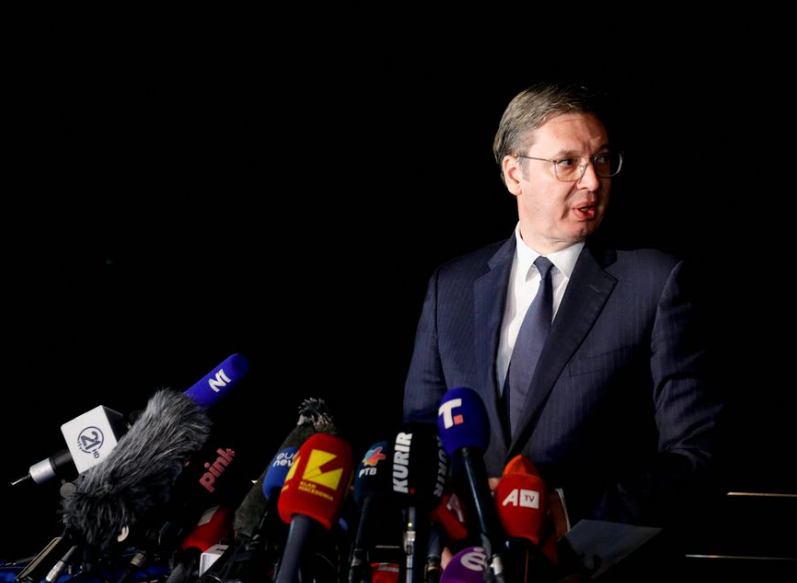
Serbian President Aleksandar Vucic and Kosovo’s Prime Minister Albin Kurti met in Ohrid, North Macedonia on the 18th of March to discuss how to implement the February agreement on the path to normalization between the two countries. The meeting was organized by the EU, but no concrete outcome was reached, leaving the Serbia-Kosovo negotiations uncertain. Despite having accepted the EU Proposal, the lack of signatures suggests that the impasse between the two sides will persist.
The 11-point agreement, reached in February, includes mutual recognition of documents and national symbols such as passports, diplomas, licence plates, and customs stamps. Additionally, both parties agreed to exchange permanent missions and not to obstruct each other’s route to the EU. Belgrade also agreed not to object to Kosovo’s membership in any foreign organisation. The agreement supports the establishment of a Serb-majority association of municipalities in Kosovo, with an appropriate level of self-management for the Serbian community in Kosovo and a direct communication channel for the Serbian community to the Government of Kosovo.
The recent Ohrid meeting was described as historic by Brussels and lasted over 12 hours. However, no deal was signed by Vucic and Kurti, suggesting that the process of normalisation between Serbia and Kosovo may take longer and be more difficult than EU diplomacy had anticipated. Despite this, the EU High Representative, Josep Borrell, who is facilitating the dialogue between Belgrade and Pristina, confirmed that both capitals have implicitly agreed on the so-called “Implementation Annex of the Agreement on the Path to Normalisation of Relations between Kosovo and Serbia,” which now constitutes an integral part of the deal. However, Borrell admitted that the parties were not able to find a mutually acceptable solution as ambitious as originally proposed by Brussels.
The implementation agreement discussed in Ohrid specifically requires Kosovo to immediately launch negotiations within the EU-facilitated Dialogue to establish precise arrangements and guarantees to ensure an appropriate level of self-management – not self-government – for the Serbian community in Kosovo. Belgrade is pushing for the creation of a Serb-majority association of municipalities in Kosovo, already agreed by Serbia and Kosovo in 2013. However, Pristina is refusing to implement it, fearing the creation of a new ‘Republika Srpska’ in Kosovo.
Equally important is the fact that both parties accepted that the February agreement and the implementation annex of March will become integral parts of the respective EU accession processes. Failure to respect and implement the deal would therefore lead to a suspension of EU integration process for both countries. For Serbia, negotiation Chapter 35 will be amended to reflect Serbia’s new obligations stemming from the agreement and the annex.
Following the talks, both Serbia’s and Kosovo’s leaders acknowledged progress, but criticized the other for failing to sign the document. Kurti stated that he was ready to sign but blamed Vucic for failing to sign for the second time after the Brussels meeting in February. Vucic, on the other hand, confirmed that he did not and will not sign any agreement with Pristina anytime soon, suggesting that he was only buying time during the marathon talks.
Without signatures, doubts remain about the validity of the agreements reached in Brussels and Ohrid. And the stalemate might continue.
Further News and Views
US blacklists three individuals in Bosnia, Dodik ‘cuts relationship’ with Washington
Sources: Radio Free Europe, Balkan Insight
Osman Mehmedagic, former director of Bosnia and Herzegovina’s intelligence and security service, has been sanctioned by the United States, along with two other individuals, for their alleged involvement in corruption. The United States Treasury Department’s Office of Foreign Assets Control (OFAC) has also blacklisted Dragan Stankovic, director of the Republika Srpska agency responsible for real estate law, a topic that has been highly controversial in the country recently, and Edin Gacanin, an alleged drug trafficker and money launderer. In response to the US decision to add Stankovic to its list of sanctioned individuals, Bosnia’s Republika Srpska entity’s president Milorad Dodik announced that the entity could severed all ties with both the US and British embassies in the country.
Moscow accused of destabilizing Moldova
Sources: CNN, Christian Science Monitor, The Conversation, Universul
In March, international media publicised an alleged covert plan by Russia’s security service, the FSB, which includes extensive strategies to destabilize Moldova. These include supporting pro-Russian parties, exploiting the Orthodox Church, and threatening to cut off the natural gas supply. The plan appears to be a response to Moldova’s efforts to strengthen ties with NATO and apply for membership in the European Union, with the need to prevent Moldova from joining NATO being emphasized multiple times in the document. A group of media outlets obtained and first revealed the information. The text lays out a 10-year plan to push back Moldova, a former Soviet republic situated between Ukraine and Romania, into Russia’s orbit.
EU - NATO
Albanians overwhelmingly support NATO, defense expenditure still low
Source: NATO
The support for NATO in the Balkans remains strong, particularly in Albania, but defense spending falls short of the Alliance’s goals, according to a NATO report. The 2022 Annual Report published by the Alliance reveals that practically no citizen of Albania wants the country to leave the alliance, making it the only one of the 30 NATO member countries with such a result. The survey found that 85% of Albanians would vote in favor of the country’s membership, while 0% would vote against it. In other countries in the region that are already members of the western military organization, an overwhelming majority also supports NATO, including Romania (84% in favor), Hungary (77%), Croatia (69%), Slovenia (60%), and North Macedonia (58%), where 22% of people interviewed expressed their wish to leave NATO. Currently, the countries with the least support are Bulgaria (51% in favor, 31% against) and Montenegro (48% in favor, 32% against).
According to the report, none of the Balkan countries spent at least 2% of their GDP on defense, as pledged at the 2014 NATO summit. Croatia is the country closest to the target, spending 1,91% of its GDP on defense, followed by Romania (1,75%), North Macedonia (1,61%), Albania (1,57%), Bulgaria (1,54%), Montenegro (1,35%), and Slovenia (1,26%).
ECONOMICS
Russia’s opaque network in the Balkans facilitated by illicit financial flows
Sources: Euractiv, The Centre for the Study of Democracy
A new analysis from the Centre for the Study of Democracy (CDS) has revealed that Russia has established a pattern of negative economic influence in the Balkans by creating an opaque network of patronage across the region to manipulate decision-making in key markets and institutions. The research shows that there is a significant amount of illicit capital flowing in and out of the Western Balkans, facilitated by governance weaknesses, widespread corruption, organized crime, and a thriving shadow economy.
The report notes that illicit money and disinformation are two powerful tools that the Kremlin uses to undermine democratic processes in Southeast Europe. The use of these techniques has also created fertile ground for China and other authoritarian regimes to exert their influence. Illicit financial flows (IFFs) are more common in the Balkans, accounting for 6% of the region’s GDP, compared to the global average of 3-5% of global GDP.

Stefano Giantin
Journalist based in the Balkans since 2005, he covers Central- and Eastern Europe for a wide range of media outlets, including the Italian national news agency ANSA, and the dailies La Stampa and Il Piccolo.

